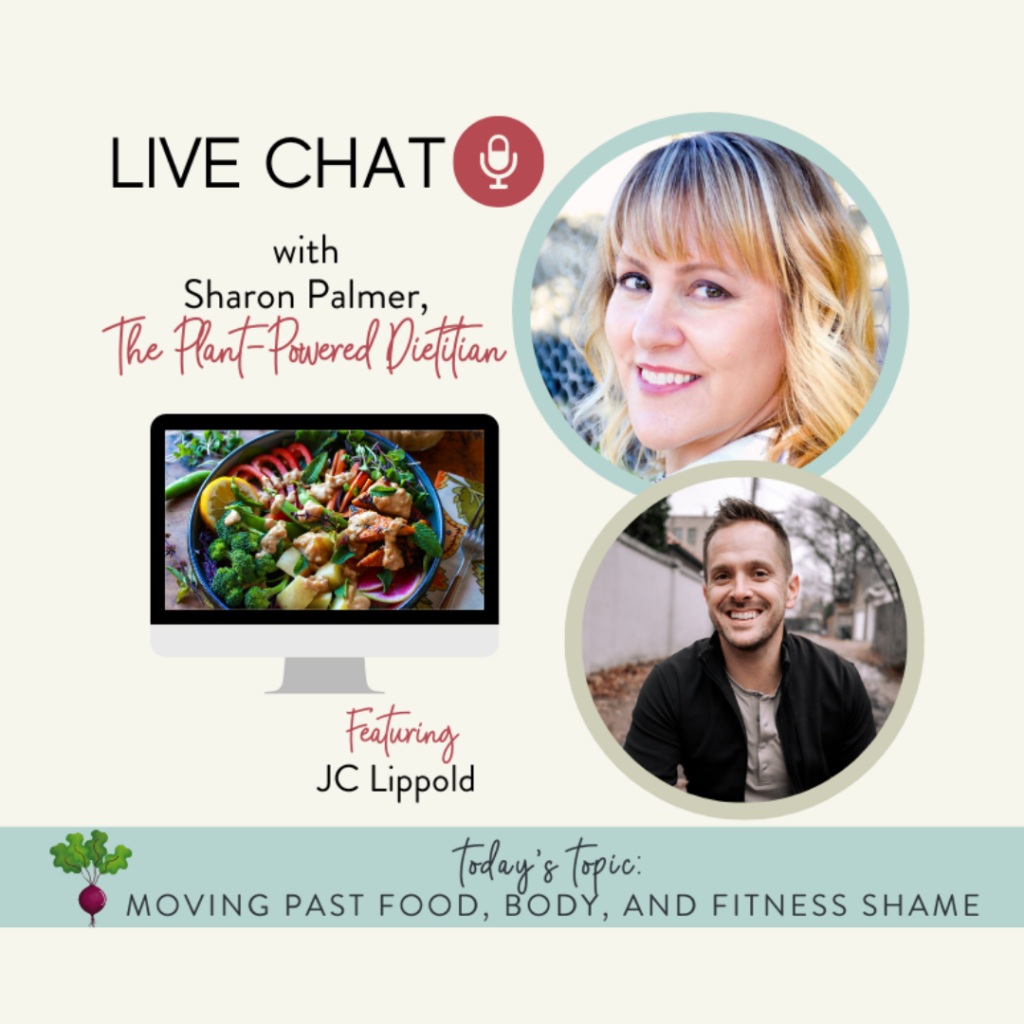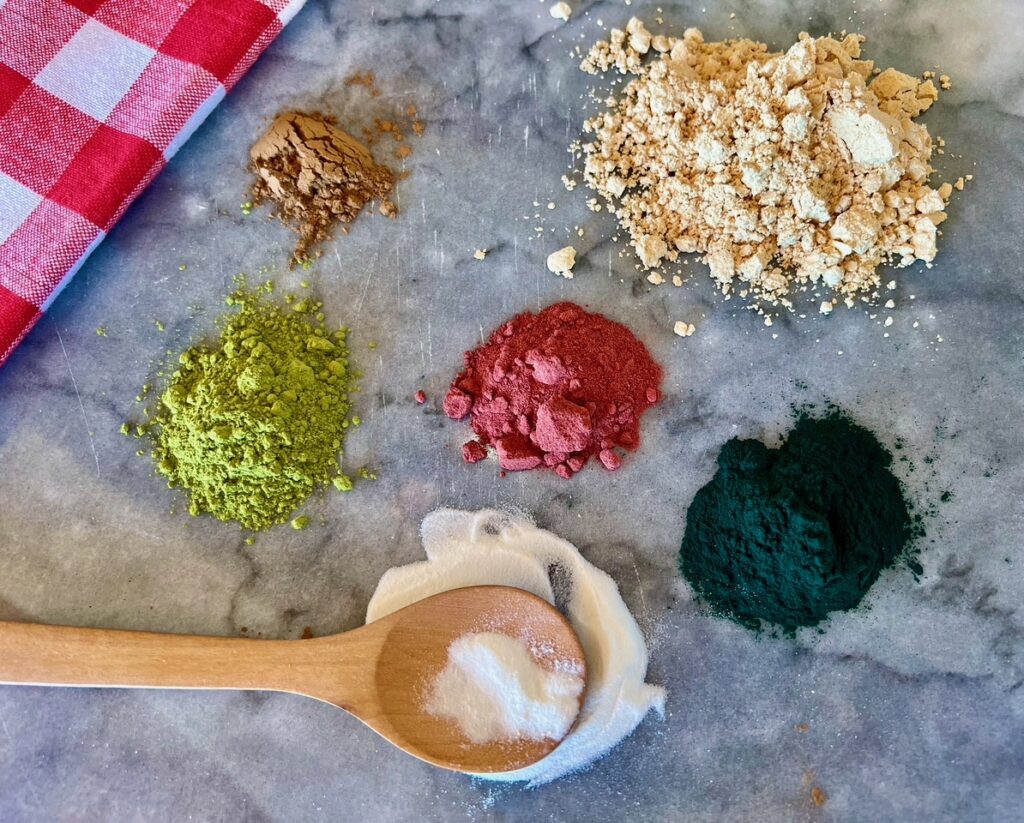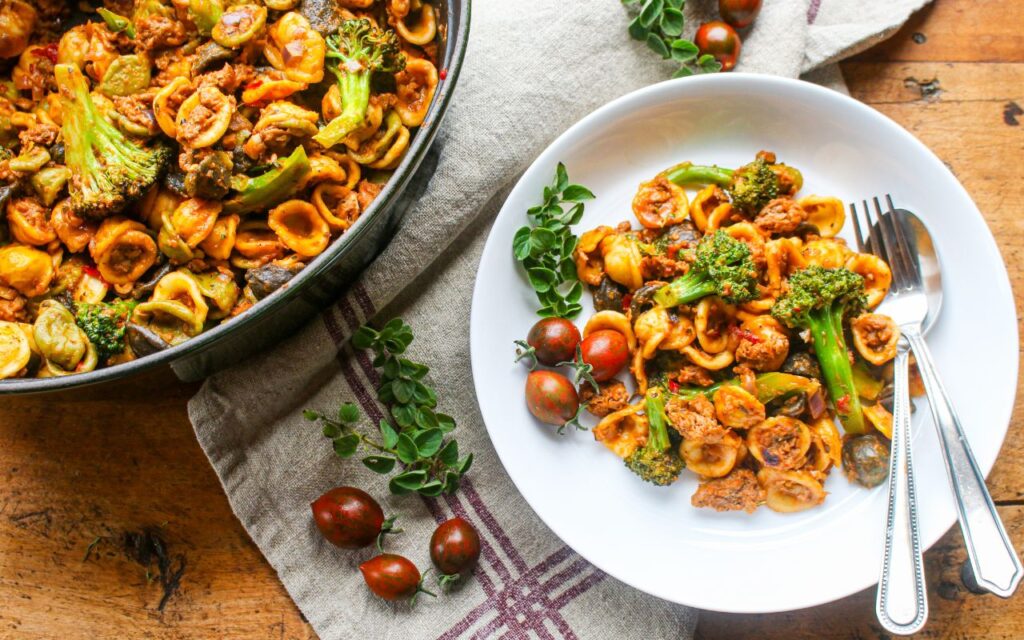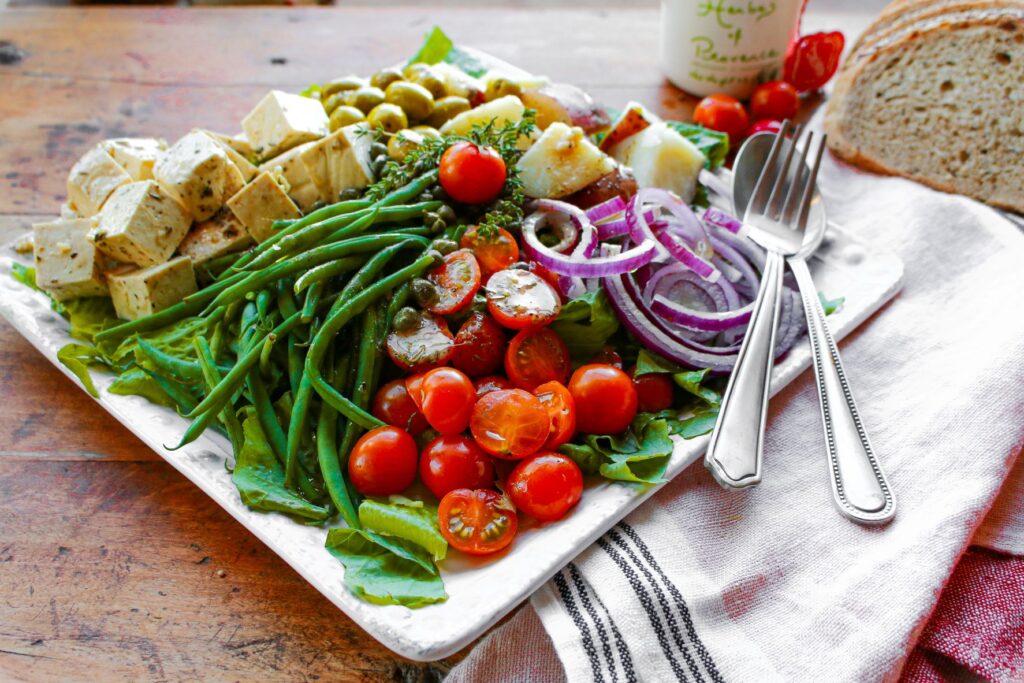How do you spot misleading Tik Tok diet trends and risky nutritional advice on other social media platforms? Scroll through for these tips on how to avoid nutrition misinformation on social media.
I love social media! Pictured above is me doing a live event in my kitchen through my social media channels.Yes, I’m on all major platforms including Instagram, Facebook, TikTok, XYouTube, Threads and Pinterest, offering my own nutritional advice, from how to cook healthy plant-based recipes to the latest nutritional science on optimal healthful eating. Many of my esteemed registered dietitian colleagues are doing the same thing on social media; we work every day to stay connected with our communities and help them live healthier lives in a harmonious way and break away from unhealthy nutrition trends and diet stigma to make changes.

Social media can be exciting. Here, trends such as music, fashion and food flourish and attract millions of followers at lightning speed. Apart from entertainment, it is a platform where many health experts share meaningful and useful information on important topics like nutrition. But sadly, label trends don’t always intersect with facts, and nutritional hype continues to spread, often going viral. I worry about this every day as I scroll through my feed and see the deluge of posts giving incorrect, shameful and downright dangerous advice to millions of people. Anyone can tag their posts (#nutrition, #diet, #loseweight) with bad nutritional advice, and many unqualified influencers do just that.While it may be harmless, e.g. what to do avocado toast, meal preparationor mocktailsit can also be misleading, unhealthy, and even risky, like celery juice “detoxes” and gut health “hacks” like using olive oil and green powder as a laxative for weight loss—which are all affected by short stature Integration into food culture and body stereotypes is often promoted by critics.

Luckily, a group of real nutrition experts are fighting nutritional misinformation with scientific facts, discrediting dangerous diet advice while sharing the joys of switching from delicious to healthy eating. Sifting through the vast nutrient space can be dizzying! Sometimes it seems like a simple decision – do we really believe that celebrities’ health and toned bodies are due to eating or drinking a specific product (which may be paying for their endorsement)? Millions of followers do, though. It’s not always easy to pinpoint the truth among the many diet trends.

what can you do? Rely on qualified resources and advice to help navigate the murky waters of nutrition social media.study How to Understand and Understand Nutritional Science, this can be a very complicated thing.You can also learn how to determine Which diets are trendyand identify helpful common-sense nutrition Supporting a healthy, delicious, approachable plant-based diet. Remember, you don’t have to make huge, punishing changes to your diet for optimal health—food is love, life, culture, and enjoyment!try The hidden health secrets of these small changes This can lead to huge results.

5 Tips for Identifying Nutrition Facts or Trends Online
Here are my top tips on how to sift through posts on your phone to find meaningful, reliable nutritional information.
#1: Question the Source
Registered Dietitian Nutritionists (RDNs) are experts with the education and experience to share research-backed information. Don’t be fooled by the term “nutritionist,” which means basically nothing for a higher education degree. Learn more about what a nutritionist really does here.

#2: Avoid “toxic” food claims
Demonizing specific foods like seed oils, sugars or carbohydrates as toxic is a red flag. There may be no scientific basis for labeling these foods “bad.” Healthy eating is the result of holistic dietary choices that focus on eating a variety of healthy foods but not overly obsessing over the perfect diet. that’s right! You can enjoy traditional foods like rice, tortillas, and pasta that have been labeled “bad” on social media, and even enjoy a good meal every now and then without feeling shame.

#3: Don’t believe in “miracle” foods
Whether the trend is to eat more protein, drink a gallon of water a day, or take a tablespoon of apple cider vinegar every day, none of these will lead to instant or effortless muscle-building results. lose weightor other false promises.
#4: Skip Realistic Nutrition
Social media is filled with celebrities and other (society-perceived) attractive influencers who attract followers by posting their messages in short, reality-style posts. There are many such posts like #what to eat in a day, showing what they eat and drink. Eating what they eat doesn’t make us look like them, nor does it make us instantly healthier. Do you even know if they are actually eating these foods?

#5: Too good to be true?
Dismiss anything that seems too good to be true. Most likely. Can lettuce water improve sleep? How about taking chlorophyll drops to lose weight? I’ll pass!
For additional tips from registered dietitians on healthy eating, check out the following:
